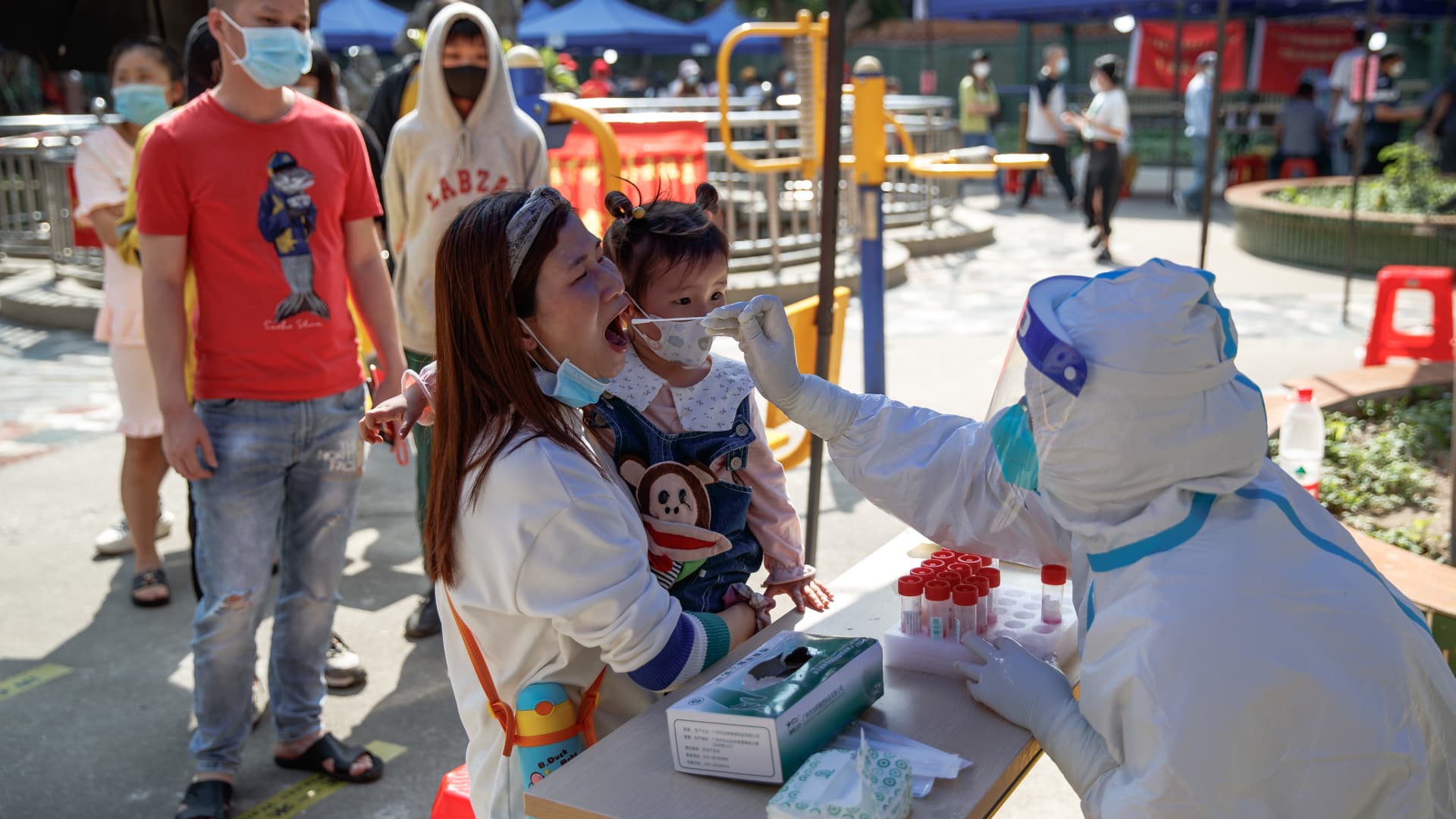China Covid outbreak: Guangzhou closes schools, Shanghai’s new cases soar to a record

All 11 districts of Guangzhou city began another round of mass Covid testing late last week, while elementary and middle schools shifted to online learning as of Monday.
Costfoto | Future Publishing | Getty Images
BEIJING — Another major Chinese city has tightened Covid restrictions as the country struggles to contain a nationwide outbreak stretching from Shanghai in the southeast to the northern provinces.
The southern city of Guangzhou closed in-person classes at elementary and middle schools as of Monday, shifting courses online. The measures will last for at least a week, according to a city announcement over the weekend.
Municipal authorities said locals should not leave the city unless necessary, and would need a negative virus test from within the last 48 hours to do so.
Guangzhou — capital of Guangdong, a manufacturing-heavy province — reported 27 new Covid cases for Sunday, including 9 without symptoms. That’s up from a total of 11 cases a day earlier, according to the National Health Commission.
Shanghai reported a record high combined number of cases for Sunday, 914 with symptoms and 25,173 without. For Saturday, authorities reported 1,006 cases with symptoms and 23,937 asymptomatic ones.
The southeastern metropolis accounts for most of mainland China’s new Covid cases. Shanghai remains in lockdown — with most people forced to stay in their apartments and get food by delivery — about a week after a two-part shutdown was originally supposed to end.
Shanghai had shifted elementary and middle schools to online learning about a month ago on March 12. The two-stage lockdown began on March 28 in the name of mass virus testing.
All 11 districts of Guangzhou city began another round of mass testing late last week. The city said Saturday it is in the process of turning an expo center into a makeshift hospital.
The latest wave of cases stems from the highly transmissible omicron variant and marks the worst Covid outbreak on the mainland since the initial phase of the pandemic in early 2020.
Factory closures, worries about jobs
Electric vehicle company Nio announced Saturday it was suspending production and delaying delivery of its cars since suppliers in the northern province of Jilin, Shanghai and the nearby Jiangsu province have had to halt production due to Covid.
A Morgan Stanley survey found that at the start of this month, about 31% of Chinese people were worried they wouldn’t be able to pay debt or rent — several percentage points higher than the March to May 2020 period.
Worries about job losses climbed back to levels seen in mid-March 2020, but slightly off highs seen that April, the survey found.
Morgan Stanley analysts don’t expect significant changes to China’s zero-Covid policy until after October or November this year. On March 31, the analysts cut their annual GDP forecast to 4.6%, down from 5.1%.
That same day, Citi analysts raised their China GDP forecast to 5.0% from 4.7% on expectations Covid’s impact on the economy would result in more government stimulus.
After battling a spike in Covid cases since late February, the northern province of Jilin — home to many automobile factories — has started to see a leveling out. The number of daily new Covid cases in Jilin has fallen from more than 1,000 or 2,000 a day, including asymptomatic ones, to several hundred a day.
Beijing, the capital of China, reported no new locally transmitted cases for Sunday. The surrounding province of Hebei reported 100 new cases, all asymptomatic.
Other major cities across the country, including Xi’an and Chengdu in central China, and Suzhou and Nanjing closer to the coast, each reported less than 10 new cases with symptoms for Sunday.
World News || Latest News || U.S. News
Source link



